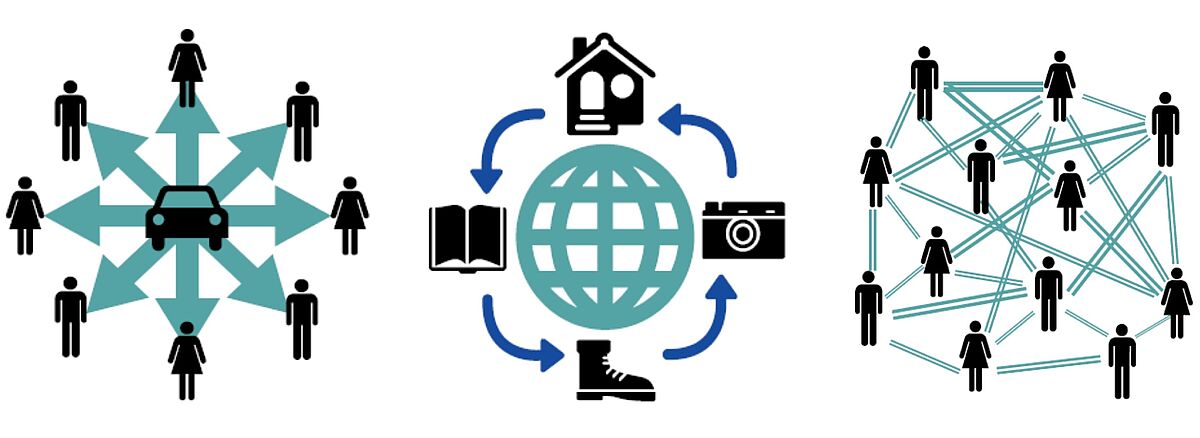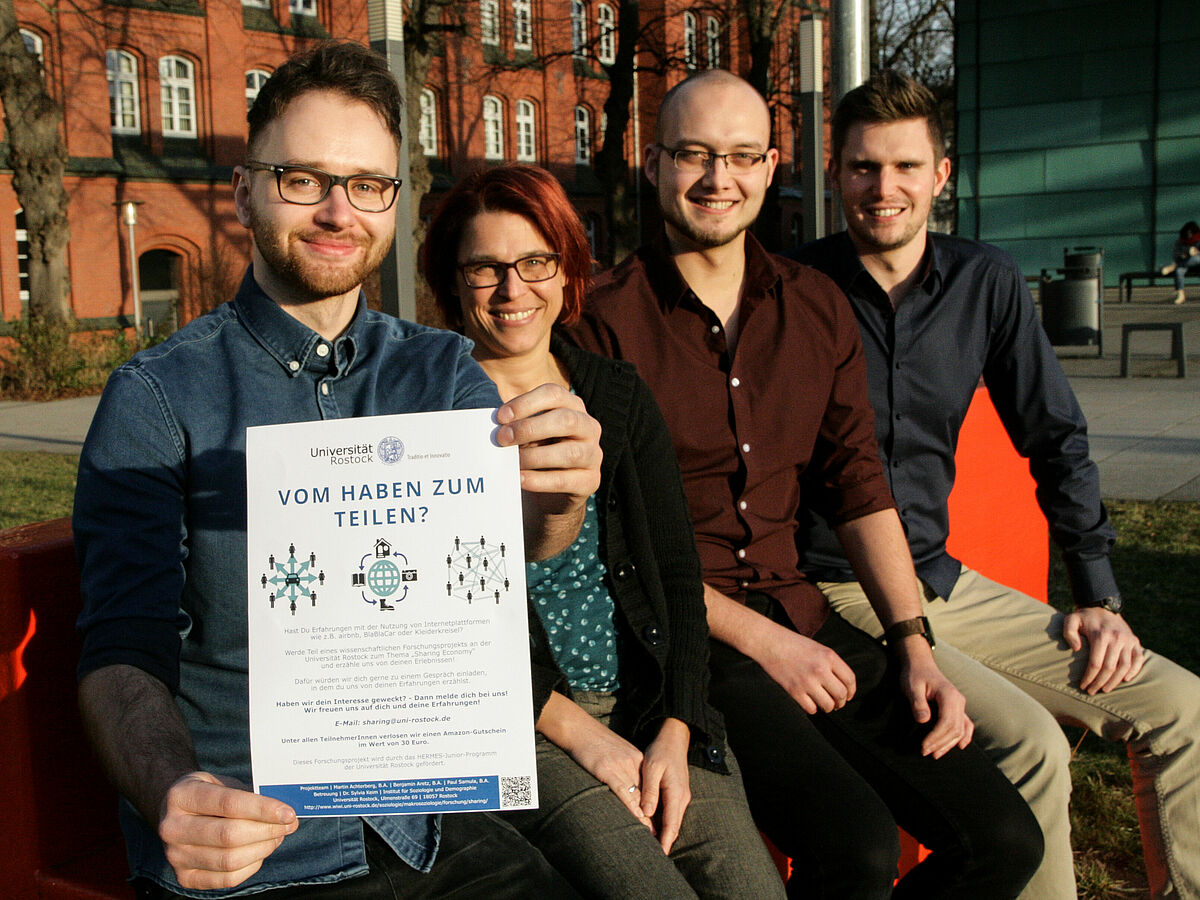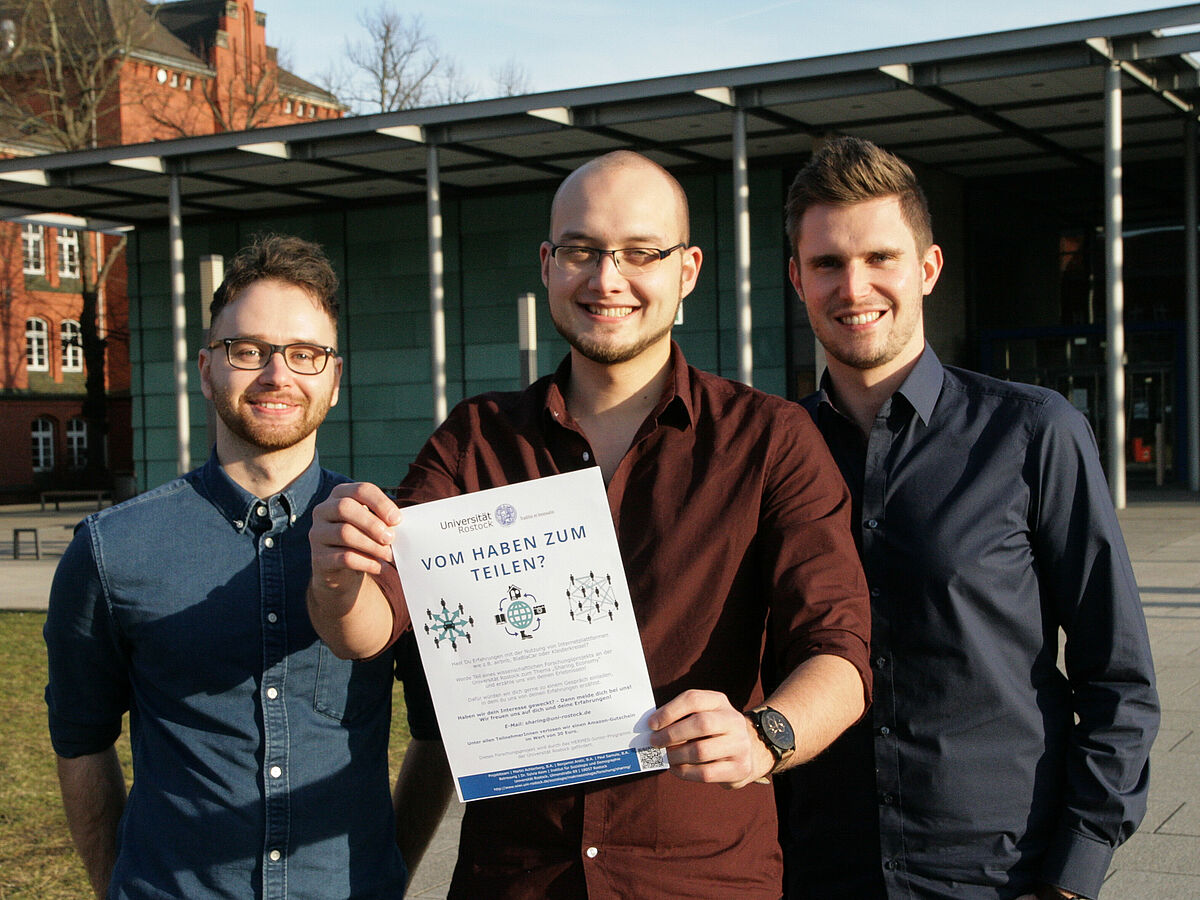Peer-To-Peer-Sharing
Practices and orientation patterns of peer-to-peer sharings in Rostock.
Sharing Economy: Trend or social change?
Everything, from living space and bicycle to car, has recently been interchanged and jointly used with the support of internet platforms. This phenomenon of joint consuming of material and immaterial goods that has to become known as „sharing economy“ or „collaborative consumption“ profits from newly created revolutionary ICT opportunities – particularly the rise of social media – and is often linked with high expectations. A decentralized creation of value, an increase of social capital and a reduction of the ecological foodprint via an efficient use of material goods. The phenomenon has been interpreted very differenly in media and scientific discourses: Thus, the Time Magazine referred in 2011 to sharing economy as one of those ten ideas that are going to fundamentally change the world. Furthermore, the occurance of sharing economy was postulated as new trend, media hype or even the emergence of a new economic system and, thus, a related profound social change.
While the sharing economy booms among various experts, the peer-to-peer sharing is largely in its infancy stage regarding its use by the general public. For instance, 73 percent of the respondents know the concept carsharing, but it has only been 10 percent of the German citizens who have used it so far. However, some authors assume, due to the connection of economic rationality, the existence of technological infrastructure and the cultural connectivity that the sharing economy will significantly grow over the coming decade. At present, it can be concluded from current empirical studies that the sharing economy is mainly an education-specific phenomenon: It is particularly young people from education oriented environments who are open to the sharing idea as regards reputation and potential use. From the sociological perspective, it is mainly the significance of social inequalities and their reproduction by the sharing economy that seem to be highly relevant in this context. On the one hand it is particularly interesting how far the peer-to-peer sharing manifests as a result of unequall distributed social resources, on the other hand it is mainly the participation and consumption opportunities of different social groups that are vitally important. This research project initiated by sociology master students of the University of Rostock is funded by the HERMES Junior Program of the HERMES research promotion of the University of Rostock between 1.9.2016 and 31.8.2017.
Research program & Method
The analyses shall focus on the fields living space (e.g. Airbnb), mobility (e.g. BlaBlaCar) and consumables (e.g. Kleiderkreisel), as these are paramount regarding awareness level and user potential. Motives for action and participation opportunities of the protagonists are in the focus of the investigation. The project has been split into three parts to identify these:
- Informational expert interviews.
- Guideline-based qualitative interviews with users.
- Evaluation: Dokumentation method.
- Quantitative survey and analysis of sharing offer use by students.
Poster
- 23.11.2017
- Praktiken und Orientierungsmuster des Peer-to-Peer Sharings in Rostock. Interdisziplinäre Postersession. Forschungscamp 2017, Universität Rostock.
- 21.09.2017
- Praktiken und Orientierungsmuster des Peer-to-Peer Sharings in Rostock. Postersession P1. 2. Konferenz für studentische Forschung, Humboldt-Universität zu Berlin.
- 15.09.2017
- Praktiken und Orientierungsmuster des Peer-to-Peer Sharings in Rostock: Chance auf Teilhabe oder Reproduktion bestehender Ungleichheiten? Panel 3: Die Stadt. 6. Studentischer Soziologiekongress, Technische Universität Chemnitz.
- "Studentisches Forschungsprojekt untersucht neue Formen des Teilens", Traditio et Innovatio, Magazin der Universität Rostock, 1/2018, S. 35
- "Studenten untersuchen die Tauschfreudigkeit der Rostocker", Ostsee-Zeitung vom 31.01.2017.
- "Hermes hilft weiter...", Heuler - Das Studierendenmagazin #117, 02-2017.
- "Sharing in Rostock", Pressemeldung der Universität Rostock vom 06.11.2017.
- "Sharing-Angebote in Rostock geprüft", Ostsee-Zeitung vom 07.11.2017.
- Radio Interview: NDR 1 Radio MV im Rahmen der Sendereihe "Das Forum" zum Thema "Weniger ist mehr" vom 03.04.2018



